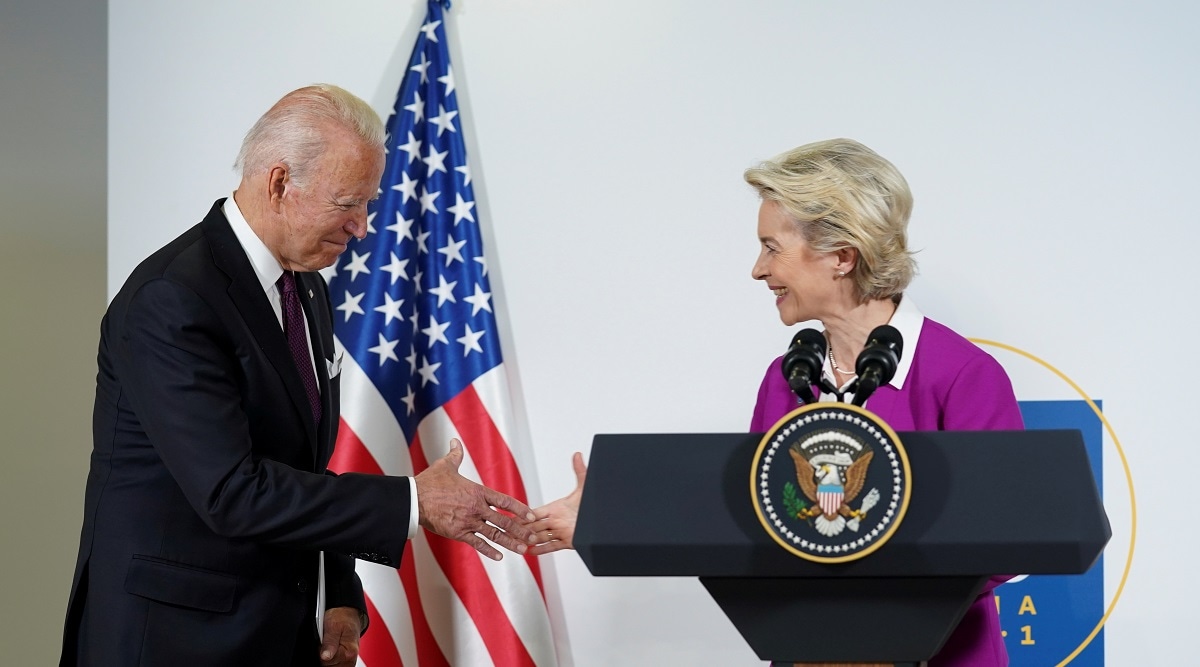Biden Mends Fences, With EU On Metal Exports
US President Joe Biden and European Commission chief Ursula von der Leyen announced the agreement to allow greater imports of EU steel and aluminium. This is an agreement for two years, the Trump-era tariffs will remain but only for imports of the metals exceeding set quotas.
There was a drop of 50% since Trump imposed tariffs, this move is expected to change the figures to a certain extend.
In addition to the 1.1 million tonnes already granted as exclusions to the tariffs, the revised quota will be 3.3 million tonnes of steel annually. Therefore the overall quota would be equivalent to exports in the 2015-2017 period, before tariffs were imports.
Further 18,000 tonnes of Aluminium and 366,000 tonnes of semi-finished product would be allowed in tariff-free by the United States.
“It’s a major step in the right direction… but it’s really not the final destination, which should be complete withdrawal of the tariffs,” says European Commission Vice President Valdis Dombrovskis, who oversees trade for the 27-nation bloc.
He told the media that the deal should also bring to an end EU retaliatory tariff on products ranging from US bourbon to Harley Davidson motorbikes.
Both partners will be working on enhancing the capacity, above all for steel and mainly centred on Chinese production, and efforts to make those industries more environmentally sustainable. Other “like-minded” partners would also be invited to join.
As per EU officials, this is in line with the 2018-2019 flows, which actually increased despite the introduction of tariffs. The Commission says that despite tariffs, data showed the United States still needed EU aluminium and that domestic price hikes induced by tariffs were simply paid for by users.

Comments
Post a Comment